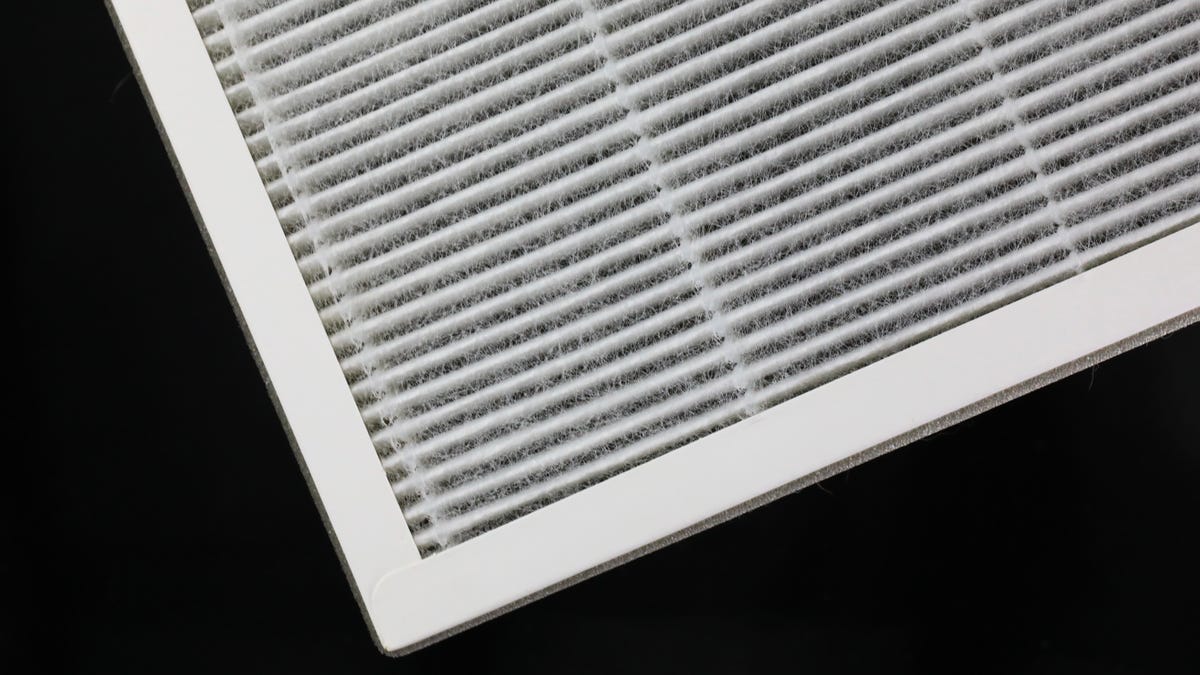 Why You Can Trust CNET
Why You Can Trust CNET Change Your Furnace Filter Now. It Could Save You Money
Replacing your furnace filter regularly is important for both your air quality and your wallet.

Turns out changing your furnace filter is good for your budget.
Between the rising cost of living, high-profile layoffs and a tumultuous investment landscape, many Americans are looking for ways to cut their spending and live more frugally.
Unfortunately, with colder weather ahead, there are some expenses (like heating) that can't be avoided. On the positive side, however, there are small things that you can do to reduce these costs, such as maintaining your furnace and the rest of your home's heating, ventilation and air conditioning, or HVAC, system.
Below, we'll explain why it's important to change your furnace filter regularly, as well as the potential savings from doing so. For more money saving tips, check out how much it costs to run a space heater, how to save on your heating bill this winter and a ceiling fan trick that will keep your home warmer.
Why furnace filters are important
Before anything else, let's explain exactly what furnace filters do and why they're needed. Simply put, filters act as a barrier between your furnace and your home's heating distribution system, preventing contaminants from getting into your home (and your lungs).
Over time, these filters collect dirt and debris, and they need to be replaced. If you don't change your filter when it's dirty, it can put unnecessary wear and tear on your HVAC system, making your furnace less efficient and more likely to break down. A clogged filter can also increase your energy bills because it forces your furnace to work harder and longer to pump warm air through your home.
Considering that new furnaces can cost as much as $10,000 (plus installation), it's within your best interest to keep your current one well-maintained -- and keeping the filter clean is one of the easiest ways to do that.
When you should replace your furnace filter
It's a smart idea to check your filter every month, especially during the colder months or any time you're using your system heavily. If it's full of dirt, hair or other debris, it's a good idea to swap it out for a new one. Otherwise, a good rule of thumb is to change your furnace filter every three months (or slightly longer if you have a thicker filter). If you have trouble remembering, think of it as something you should do whenever the seasons change.
However, there are some caveats to this three-month rule. For instance, if you have a cat or dog that sheds, your filter will get clogged faster and will likely need to be changed every month or two. Similarly, if you smoke indoors or have health issues (such as allergies or asthma), you might want to change your filter more than once every three months. You can also check your furnace owner's manual for specific instructions about your particular model.
How much money you could save by changing your filter regularly
According to Energy Star, the typical US household spends more than $2,000 a year on utility bills – and heating and cooling account for about half of that expense. On average, that's around $1,000 a year in heating costs, but this figure can be higher if you live somewhere with extreme weather. Plus, with the rising cost of energy, heating and cooling expenses will increase this year for many families.
Fortunately, changing your HVAC filters regularly can help cut down on those costs. In fact, the Department of Energy advises that replacing a dirty air filter with a clean one can reduce your system's energy usage by up to 15%.
Based on these numbers, it's possible to save $150 a year (or more) if you replace your filter at least every three months. However, these savings are highly dependent on your climate, energy consumption habits and the price of air filters.
Other ideas to save on your utility bills
In addition to changing your furnace filter, there are several other ways to keep utility costs down. For example, turning off your lights is a simple but effective energy-saving strategy. Similarly, weatherstripping your home can reduce your reliance on heat and AC, bringing down your power consumption. Finally, setting your thermostat to this specific temperature and showering rather than bathing are also easy ways to save energy and money.
The bottom line
By monitoring your filter each month and replacing it when it's clogged, you can reduce the amount of energy your furnace uses and cut down on utility costs. Plus, swapping out your filter every quarter keeps your home cleaner and healthier -- which is especially important for anyone who suffers from respiratory illnesses or allergies.
More money-saving tips
- Unplug These Appliances and Watch Your Electric Bill Drop
- You're Probably Doing Your Laundry Wrong and Your Energy Bill Is Suffering
- The Best Energy-Saving Smart Home Devices to Help You Save on Utility Bills
- Air Fryers Use Less Energy Than Big Ovens. Here's How Much You Can Save
- Yes, Energy Star Appliances Save You Money. Here's How